See below for an archive of information about past events that were sponsored or co-sponsored by the Digital Commons.
Spring 2022 Events
Acadimension! 3D-Scanning and Augmentation in Research and Scholarship
- Sponsor: Digital Commons featuring the Digital Imaging Lab
- Panelists: Steven Wernke, associate professor of anthropology; Giles Spence Morrow, a postdoctoral research fellow in data science and anthropology; Ole Molvig, assistant professor of history, communications of science and technology, and physics; and Connor Gilmore, digital imaging specialist at the Digital Commons
- Facilitator: Cazembe Kennedy, assistant director of the Digital Commons
- Date and Time: Wednesday, April 6th, 12:00pm to 1:00pm
- Location: Zoom
Being able to recreate artifacts from the physical world and interact with them through a digital lens offers you a lot of power, flexibility, and opportunities to learn and teach. The technology and expertise to undertake this type of scanning of objects and augmenting them for research or teaching is available on our campus and some of your colleagues are using these tools for a variety of purposes.
In this Spotlight Event, we'll hear from three panelists who are currently involved in 3D scanning for research and teaching, and a fourth panelist from the Digital Commons to show examples and discuss how we can be an in-house resource for your 3D scanning and image augmentation needs!
• Steve Wernke (Anthropology) produces models, VR environments, and site maps of archaeological spaces, excavations, and artifacts and Giles Spence Morrow (Data Science Institute / Anthropology) uses advanced photogrammetry to produce virtual versions of archaeological sites.
• Ole Molvig (History/Communications of Science and Technology/Physics) has taught 3D scanning workshops focusing on the mobile versions of iPhones and other low-barrier-to-entry artifacts.
• Connor Gilmore (Digital Imaging Specialist) will give a live demonstration and provide information on resources and ways the Digital Commons can help you get started incorporating these technologies and tools, focusing on the Cinema 4D software.
This panel will provide a great blend of expertise from colleagues and helpful steps from your university-wide digital tools resource on how to begin, continue, or improve your 3D scanning academic journey!
Open to Vanderbilt faculty, staff, postdocs, and students.
Two Can be Better than One: Adapting Mixed Method Research Approaches to Digital Environments
- Sponsors: Digital Scholarship & Communications (DiSC) and the Digital Commons
- Facilitator: Dr. Elizabeth Creamer, professor emerita, Educational Research, Virginia Tech, Co-Editor in Chief, Methods in Psychology, Elsevier UK, Mixed Methods Section
- Date and Time: Tuesday, April 5th, 12:00pm to 1:30pm
- Location: Zoom
The mixing of quantitative and qualitative research analysis methods offers power and flexibility that sometimes is not possible through simply focusing on one or the other. It is a research methodology that is adaptable to diverse settings, including those that involve teaching and learning in digital environments. This discussion will provide an overview of mixed methods research (MMR), including why/when you would want to use MMR as opposed to solely qualitative or quantitative, and will share some useful digital tools for MMR. Using examples from research about learning in online environments, this webinar will elaborate the distinctions between integrated and non-integrated approaches to mixed method research. It will review the implications of the two approaches to our understanding of philosophical views about the nature of knowledge, analytical procedures, research expertise, how collaboration is approached, expectations for reporting, and quality considered.
Dr. Elizabeth G. Creamer served on the Board of the Mixed Method International Research Association (MMIRA), including as president, from 2013 to 2018. Now professor emerita, Creamer taught introductory and advanced mixed methods research courses from 2007 to her retirement in 2018. She is the author of two textbooks, An Introduction to Fully Integrated Mixed Methods Research (2018) and Advancing Grounded Theory with Mixed Methods (2022). She has begun work on a third textbook, Leveraging Mixed Methods with Visual Displays.
Open to Vanderbilt faculty, staff, postdocs, and students.
Creating Engaging Research Videos through Digital Storytelling
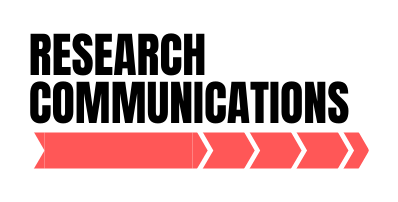 Sponsor: Digital Commons
Sponsor: Digital Commons- Facilitator: Stephanie Castillo, PhD candidate in science communications and founder, Ph.uture D.octors
- Date and Time: Wednesday, March 16th, 3:00pm to 4:00pm
- Location: Zoom

Whether you want to spread the word about your latest research, shine a light on one of your graduate students and their work, pitch a big idea to a potential funder, or share your expertise on current events and controversies, producing a short video might just be the best way to communicate with a wide audience.
In this workshop, science communicator Stephanie Castillo will teach researchers and scholars how to broaden their impact through their digital presence. Participants will learn how to produce short videos about their research for audiences both specialized (e.g. readers of science journals) and broad (e.g. TikTok users).
The workshop will draw on science communication research and strategy, as well as multimedia storytelling practices. Participants will leave with ideas for how they (and their research teams) might use videos in their outreach efforts, and they'll learn about campus resources to support this kind of creative work.
Open to Vanderbilt faculty, staff, postdocs, and students.
Podcasting Essentials: What You Need to Know to Launch Your Own Podcast
- Sponsors: Digital Commons, Center for Teaching
- Facilitator: Rhett McDaniel, assistant director for digital media, CFT
- Date and Time: Wednesday, March 9th, 2:00pm to 3:30pm
- Location: Digital Commons, Room 012
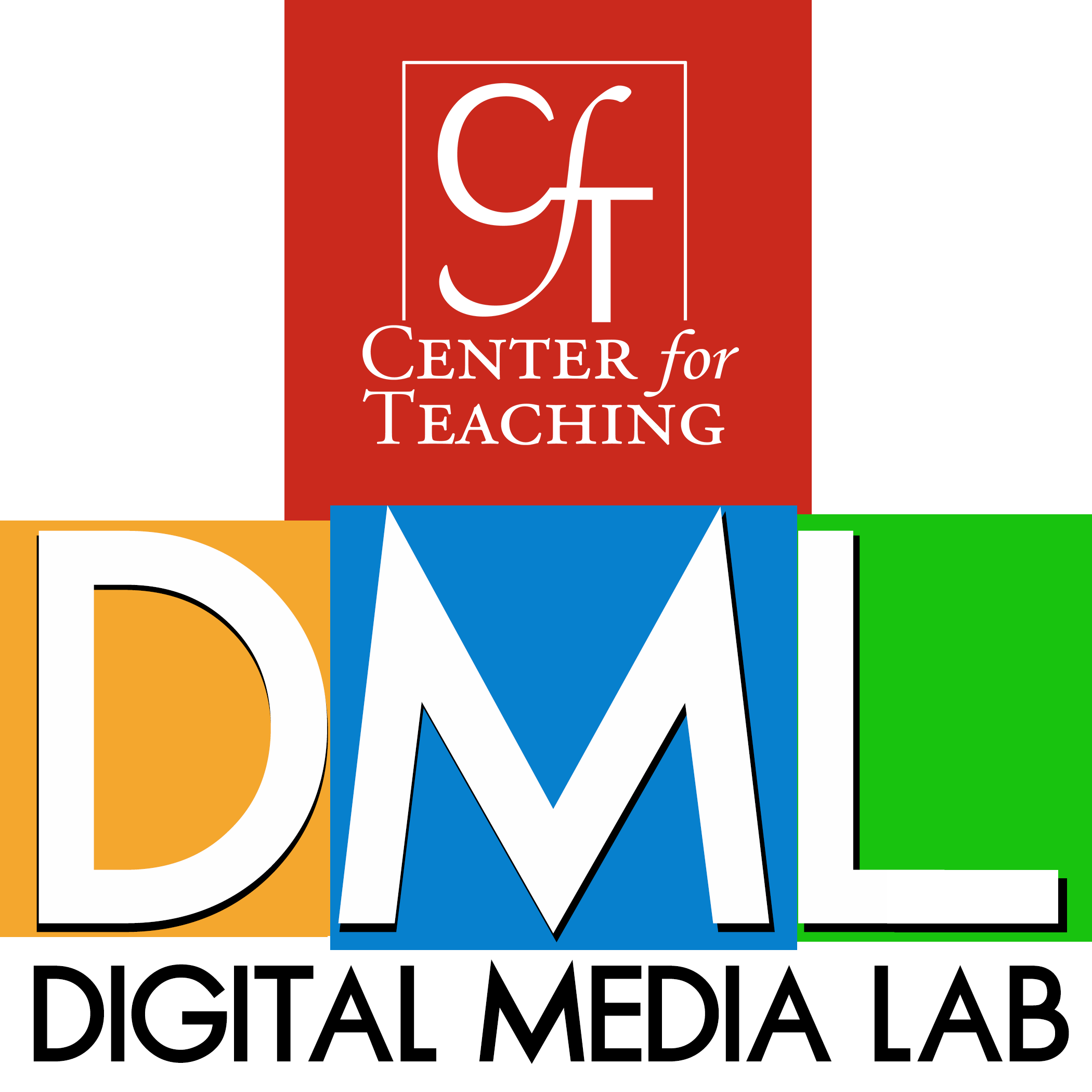
Have you ever listened to a podcast and been inspired to make one of your own? You can! Producing academic podcasts around your course topics is a great way to help your students learn. In addition, your podcast would be accessible to the nearly 118 million podcast listeners all over the world.
In this session, you'll have a chance to visit the new Digital Media Lab in the Digital Commons building at 1101 19th Ave. South and become familiar with the hardware and software you'll need to create a professional sounding podcast, You'll also learn about other important aspects of successful podcasts like finding sources for music and sound elements, uploading and storing audio files, listing your podcast on Spotify and Apple, and designing your podcast artwork.
Open to Vanderbilt faculty, staff, graduate students, and postdocs.
How to Train Research Assistants to Clean Data
- Sponsor: Digital Commons, Data Science Institute
- Facilitator: Bianca Manago, assistant professor of sociology
- Date and Time: Wednesday, March 2nd, 12:00pm to 1:00pm
- Location: Zoom
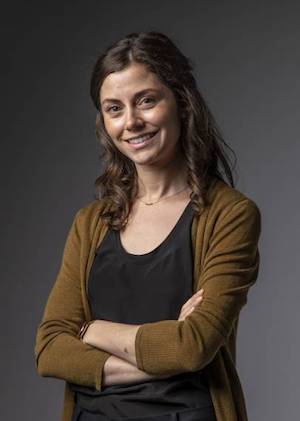
After data collection and before data analysis lies the all-important step of data cleaning. This is an integral, yet time-consuming part of any data-focused research project, and it is often delegated to research assistants (RAs). Unfortunately, data cleaning is not typically taught formally in the statistics courses our RAs have taken. As a result, many RAs don't understand how to approach data cleaning and can miss critical steps and considerations, resulting in more work and more headaches later in the project.
Research faculty (both junior and senior) are invited to this workshop on training RAs to clean data. The workshop will provide a general framework for data cleaning, introducing key steps in the data cleaning process and the sequence these steps should be taken. And the workshop will provide guidance for training and mentoring RAs to clean data in ways that are both transparent and reproducible.
This workshop will be led by Bianca Manago, assistant professor of sociology. Professor Manago's research examines inequality. She also studies statistical and methodological approaches to social science research.
Open to Vanderbilt faculty, staff, grad students, and postdocs.
Designing Graphs and Charts for Publication
 Sponsor: Digital Commons, Stevenson Science & Engineering Library
Sponsor: Digital Commons, Stevenson Science & Engineering Library- Facilitators: Josh Borycz, librarian for STEM research, and Francisco Juarez, librarian for STEM research
- Date and Time: Friday, February 25th, 12:00pm to 1:00pm
- Location: Zoom
How can you go from data in a spreadsheet to a publication-ready figure? Whether you're representing your research through scatterplots, bar charts, heat maps, or some other form of data visualization, doing so is easier than ever with current digital technologies.
In this workshop, we'll demonstrate tools for designing graphs and charts for publication, with a focus on the commonly used tools Excel and Tableau. Whether you're just figuring out bar charts or ready for more advanced data visualization, you'll learn about new options for producing quality figures.
This workshop will be led by Josh Borycz and Francisco Juarez, librarians for STEM research at the Stevenson Science & Engineering Library. The workshop will have plenty of time for questions, so bring the graphs and charts you're working on!
Open to Vanderbilt faculty, staff, students, and postdocs.
New Horizons in Digital Social Science Research
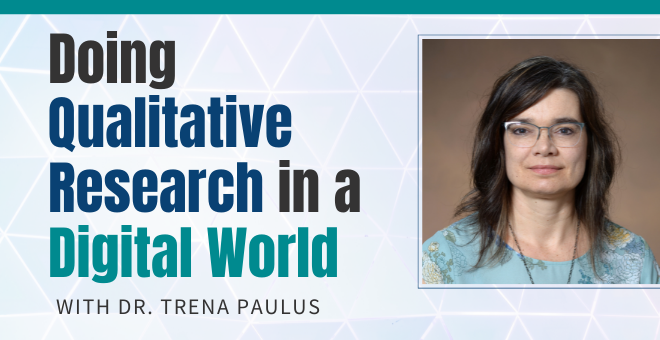 The following two events are part of the special series, New Horizons in Digital Social Science Research, sponsored by Digital Scholarship & Communications (DiSC) at the Vanderbilt Libraries. Our guest on February 22nd is Dr. Trena Paulus, professor in the Applied Social Research Lab and director of Undergraduate Research and Creative Activities at East Tennessee State University. Dr. Paulus is co-author of Doing Qualitative Research in a Digital World (Sage, 2021), Looking for Insight, Transformation and Learning in Online Talk (Routledge, 2019), and Digital Tools for Qualitative Research (Sage, 2014).
The following two events are part of the special series, New Horizons in Digital Social Science Research, sponsored by Digital Scholarship & Communications (DiSC) at the Vanderbilt Libraries. Our guest on February 22nd is Dr. Trena Paulus, professor in the Applied Social Research Lab and director of Undergraduate Research and Creative Activities at East Tennessee State University. Dr. Paulus is co-author of Doing Qualitative Research in a Digital World (Sage, 2021), Looking for Insight, Transformation and Learning in Online Talk (Routledge, 2019), and Digital Tools for Qualitative Research (Sage, 2014).
What Can Qualitative Data Analysis Software Do for You?
- Sponsor: Digital Scholarship & Communications (DiSC)
- Facilitator: Trena Paulus, professor in the Applied Social Research Lab, director of Undergraduate Research and Creative Activities, East Tennessee State University
- Date and Time: Tuesday, February 22nd, 1:30 to 3:00pm
- Location: Digital Commons, Room 210 (small event space)
Wondering how best to use software for your qualitative research study? This interactive discussion will focus on the available packages on the market today, provide an overview of what these packages can and cannot do, illustrate how software can serve as the foundation for a comprehensive research workflow, and share tips for how to select the best package for your needs. Examples from ATLAS.ti software will be used throughout and time for Q&A will be included.
Open to Vanderbilt faculty, staff, grad students, and postdocs.
Doing Qualitative Research in a Digital World
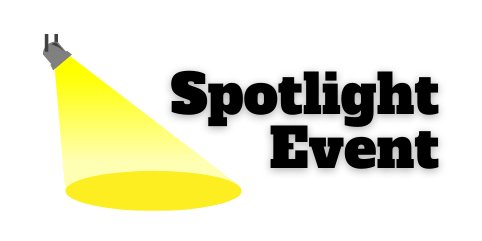 Sponsors: Digital Scholarship & Communications (DiSC)
Sponsors: Digital Scholarship & Communications (DiSC)- Speaker: Trena Paulus, professor in the Applied Social Research Lab, director of Undergraduate Research and Creative Activities, East Tennessee State University
- Date and Time: Tuesday, February 22nd, 4:00pm to 5:00pm
- Location: Digital Commons, Room 200 (large event space)
In this lecture, Dr. Paulus will lead the audience in a critical appraisal of the role that digital tools and spaces play across the qualitative research process. A range of strategies for designing research workflows will be illustrated, including the political, ethical, and methodological dilemmas and solutions they present. Dr. Paulus will illustrate how to develop a process for engaging in reflexive practices that will keep the consequences of choices around research methods and the technologies to enact them at the forefront of the process. These processes include creating a paperless literature review process, theorizing new sources of data, considering how technological developments are impacting transcription and data analysis practices, and engaging in networked practices that represent findings in innovative ways.
Open to Vanderbilt faculty, staff, grad students, and postdocs.
Digital Project Management for Research Teams
- Sponsors: Digital Commons, Data Science Institute
- Facilitator: Bianca Manago, assistant professor of sociology
- Date and Time: Monday, February 21st, 12:00pm to 1:00pm
- Location: Zoom

What steps can you take at the start of a data-focused research project to keep your team organized? Or to make it easier for new team members to join the work? Or to return to a project after some time away without retracing your steps?
Research faculty (both junior and senior) are invited to this workshop on strategies for digital project management for research teams. Whether you have just one research assistant or a team of grad students and postdocs, there are fundamental moves you can make when managing projects to increase efficiency, accuracy, and replicability of your work. Learn about developing research plans, organizing and naming files, and more.
This workshop will be led by Bianca Manago, assistant professor of sociology. Professor Manago's research examines inequality. She also studies statistical and methodological approaches to social science research.
Open to Vanderbilt faculty, staff, grad students, and postdocs.
Building Your Professional Network with LinkedIn and Twitter
 Sponsors: Digital Commons, VU Communications and Marketing
Sponsors: Digital Commons, VU Communications and Marketing- Facilitators: Jaclyn Antonacci, senior social media specialist
- Date and Time: Thursday, February 17th, 2:00pm to 3:00pm
- Location: Zoom
Smart use of social media can help an academic strengthen their professional network, grow new audiences for their scholarly work, and keep up with developments in their field. But once you've set up your Twitter or LinkedIn account, what do you do next to start reaping those benefits?
The workshop, led by Vanderbilt's senior social media specialist Jaclyn Antonacci, will feature strategies for making the most of LinkedIn and Twitter. Participants will learn how to connect with colleagues in meaningful ways on these networks and how to craft posts that will enhance one's digital presence. You'll learn about groups and lists and endorsements, and more!
Open to Vanderbilt faculty, staff, grad students, and postdocs.
Professional Productivity: Better Project Collaboration through Technology
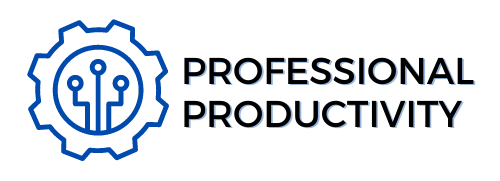 Sponsors: Digital Commons, Vanderbilt IT
Sponsors: Digital Commons, Vanderbilt IT- Facilitators: Paige Snay, lead instructional technologist, Center for Teaching; Damon Miltner, information systems manager, Vanderbilt IT
- Date and Time: Friday, February 11th, 12:00pm to 1:00pm
- Location: Zoom
Have you ever emailed a file with a title like "Working_Document_DBedits_Staceyedits_final_TGedits_forrealfinal.docx"? Or needed to ask a question of your research team and not really caring who answered as long as someone answered today? Collaboration is key to many research initiatives and other kinds of projects, but collaboration can be hard. With messages flying between team members and different versions of documents haunting your inbox, it can be hard to keep the team on track and productive.
Herding cats may be impossible, but there are tools that can help with project collaboration. In this practical professional productivity workshop, we'll learn about Microsoft Teams and Microsoft OneDrive, two tools free to Vanderbilt faculty, staff, and students that can help project teams work well together. These laptop- and phone-friendly tools can help team members communicate quickly, keep track of decisions and resources, and make file organization and versioning manageable.
The workshop will feature Paige Snay, lead instructional technologist at the Center for Teaching, sharing how the Brightspace support team uses Teams for collaboration and coordination, and Damon Miltner, information systems manager at VUIT, providing strategies for using Teams and OneDrive productively.
Open to Vanderbilt faculty, staff, postdocs, and students.
Re-Visioning: Virtual Reality in Research, Scholarship, and Creative Expression
Re-Visioning: Virtual Reality in Research, Scholarship, and Creative Expression
 Sponsors: Digital Commons
Sponsors: Digital Commons- Panelists: Lynn Ramey, professor of French and faculty director, Center for Digital Humanities; Corey Brady, assistant professor of mathematics education; Krista Knight, writer in residence in theatre and cinema & media arts; and Giles Spence Morrow, postdoctoral research fellow in anthropology
- Date and Time: Monday, February 7th, 12:00pm to 1:00pm
- Location: Zoom
Between the new Oculus Quest headsets and the "metaverse," Facebook would have you believe virtual reality (VR) is the future of human-computer interaction. While VR may be having a moment in 2021, the technologies of virtual and augmented reality have been around in one form or another for decades. As these technologies mature, an increasing number of faculty are exploring their uses in research, scholarship, and creative expression.
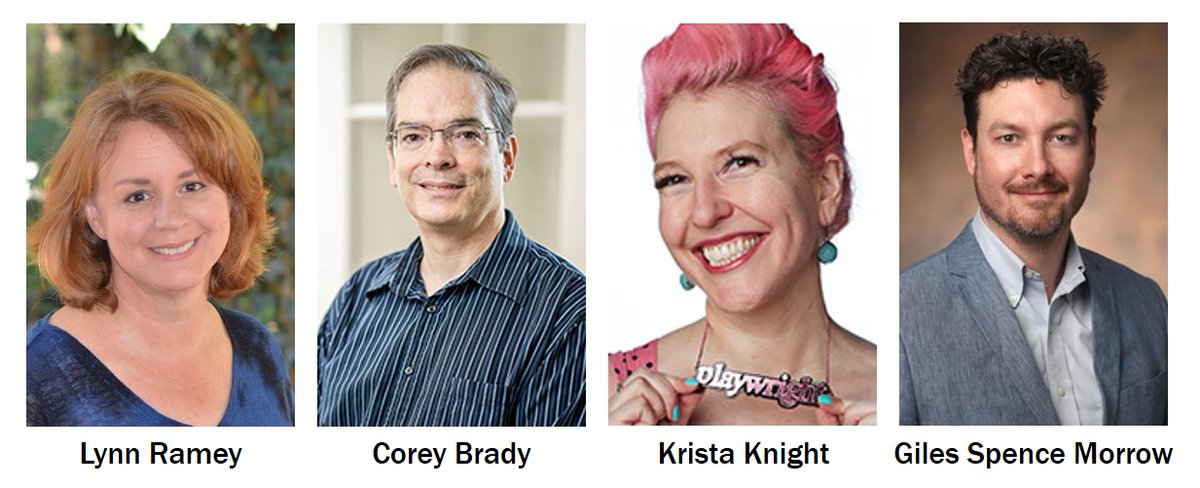
In this Spotlight Event, we'll hear from four panelists who are exploring the use of VR and AR in their respective fields.
- Lynn Ramey (French) creates immersive environments that allow users to play through historical moments of cultural interaction.
- Corey Brady (Teaching & Learning) invites students to design augmented reality games as a way to learn math and science.
- Krista Knight (Theatre) explores the potential of virtual reality for interactive storytelling.
- Giles Spence Morrow (Data Science Institute / Anthropology) uses advanced photogrammetry to produce virtual versions of archaeological sites.
Hear what your colleagues are doing with virtual and augmented reality across campus and learn how you can get started exploring VR applications in your discipline.
Open to Vanderbilt faculty, staff, students, and postdocs
Reaching Students through Open Pedagogy and Digital Media
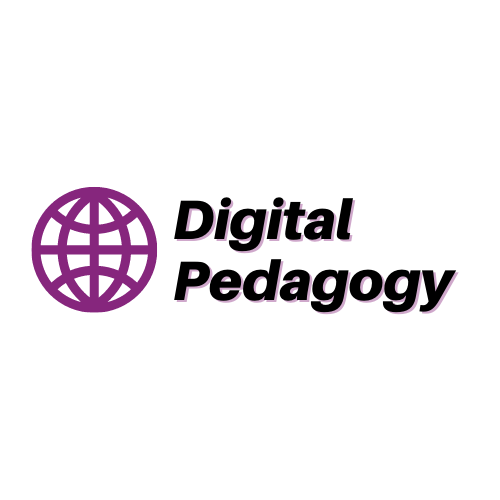 Sponsors: Digital Commons, Digital Scholarship & Communications (DiSC), Center for Teaching (CFT)
Sponsors: Digital Commons, Digital Scholarship & Communications (DiSC), Center for Teaching (CFT)- Facilitators: Andrew Wesolek, director of digital scholarship & scholarly communications, DiSC, and Rhett McDaniel, assistant director for digital media, CFT
- Date and Time: Tuesday, February 1st, 3:00pm to 4:00pm
- Location: Zoom
Creating digital media, including video and audio, for use in teaching and learning has never been easier. Whether it's a short lecture video for students to watch before class, a class podcast with student-produced episodes, or an interactive tutorial for students to review before an exam, faculty and other instructors have lots of options for creating and sharing multimedia resources with their students.
If you (and maybe your students) are going to produce quality educational resources, why limit access to those resources to a particular class of students? The practice of open pedagogy invites instructors to consider other audiences for their learning materials, perhaps other courses on campus, students in future offerings of a course, or even students at other institutions around the world.
In this workshop, participants will be invited to consider how they might pursue a more open pedagogy through the creation and sharing of digital media. Andy Wesolek, director of digital scholarship and scholarly communications at the Vanderbilt Libraries, will explore the practice of open pedagogy and the benefits it can bring to faculty and to students. Rhett McDaniel, assistant director for digital media at the Center for Teaching, will showcase the variety of digital media that faculty might be interested in creating on their own or with students. Rhett will also share how the Digital Media Lab can help faculty get started with this kind of work.
Open to Vanderbilt faculty, staff, graduate students, and postdocs.
Better Presentations for You and Your Grad Students
 Sponsors: Digital Commons, Writing Studio
Sponsors: Digital Commons, Writing Studio- Facilitator: Megan Minarich, assistant director, Writing Studio
- Date and Time: Wednesday, January 26th, 12:00pm to 1:00pm
- Location: Zoom
Death by PowerPoint. We've all sat through a conference presentation or lecture where the presenter put their whole talk on their slides and then read their slides aloud to the audience. It's not pretty. The good news is that there is a better way.
How can you or your grad students combine spoken delivery with slides or other visuals to communicate your work and inform your audience? Doing so takes careful attention to the design of your presentation, integrating form and content. Join us for this workshop on presentation design for research and teaching, led by Megan Minarich, assistant director at the Writing Studio, and come away with design tips for your presentations and those of your research or teaching teams.
Open to Vanderbilt faculty, staff, graduate students, and postdocs.
Fall 2021 Events
Introduction to Research Data Management at Vanderbilt
 Sponsors: Digital Commons, Digital Scholarship and Communications, Research IT Services, Data and Strategic Analytics, Data Science Institute, Vanderbilt Information Technology, Office of General Counsel
Sponsors: Digital Commons, Digital Scholarship and Communications, Research IT Services, Data and Strategic Analytics, Data Science Institute, Vanderbilt Information Technology, Office of General Counsel- Panelists: Derek Bruff, Cliff Anderson, Andrew Wesolek, Lindsey Fox, Olivia Kew-Fickus, Stephanie Rodriguez, Jesse Spencer-Smith, Michael McAllister, Jeff Loudon
- Data and Time: Monday, November 1, 1:00pm to 2:00pm
- Location: Zoom
Whether you're collecting data for your research project or utilizing existing data, managing research data is an increasingly complex task. Where can you store your data and how can you keep it secure? How can you access and compute with your data efficiently and reliably? And how can you share your data with other researchers and preserve it for the long-term?
This workshop features representatives from a number of Vanderbilt groups that can help answer these and other questions about research data management. The session will (1) start with a "big picture" overview of research data management at Vanderbilt, (2) feature case studies illustrating the choices faculty have made and the resources they've used, and (3) conclude with live consulting with the panelists. Bring your questions!
Whether you're new to Vanderbilt and want to learn about resources, or you're writing a research data management plan for a grant proposal, or have a particular question or challenge about managing your research data, you'll find this introduction to research data management useful.
Open to Vanderbilt faculty, staff, graduate students, and postdocs.
Citations Made Easy: An Introduction to Mendeley
- Sponsors: Digital Commons, Vanderbilt Libraries
- Facilitator: Francisco Juarez, librarian for STEM research
- Date and Time: Thursday, October 28th, 11:00am to 12:00pm
- Location: Zoom
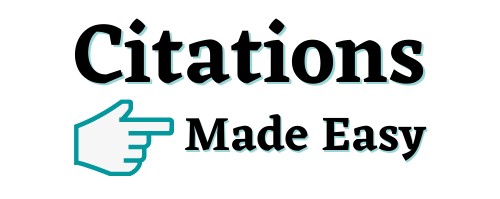 Finding, organizing, and sharing research can be frustrating, but there are tools that can make the process substantially easier. Citation managers like Endnote and Mendeley are tools for collecting, searching, and formatting references that integrate with web browsers and word processors. These tools are key to building your library of papers for whatever grant, paper, or literature review you're working on.
Finding, organizing, and sharing research can be frustrating, but there are tools that can make the process substantially easier. Citation managers like Endnote and Mendeley are tools for collecting, searching, and formatting references that integrate with web browsers and word processors. These tools are key to building your library of papers for whatever grant, paper, or literature review you're working on.
In this very practical (and time-saving!) workshop, librarian Francisco Juarez will walk participants through all the steps needed to get start using Mendeley, a citation manager popular with science and engineering researchers.
Open to Vanderbilt faculty, staff, graduate students, and postdocs.
Citations Made Easy: An Introduction to EndNote
- Sponsors: Digital Commons, Vanderbilt Libraries
- Facilitator: Rachel Walden, reference and instruction librarian
- Date and Time: Tuesday, October 26th, 11:00am to 12:00pm
- Location: Zoom
 Finding, organizing, and sharing research can be frustrating, but there are tools that can make the process substantially easier. Citation managers like Endnote and Mendeley are tools for collecting, searching, and formatting references that integrate with web browsers and word processors. These tools are key to building your library of papers for whatever grant, paper, or literature review you're working on.
Finding, organizing, and sharing research can be frustrating, but there are tools that can make the process substantially easier. Citation managers like Endnote and Mendeley are tools for collecting, searching, and formatting references that integrate with web browsers and word processors. These tools are key to building your library of papers for whatever grant, paper, or literature review you're working on.
In this very practical (and time-saving!) workshop, librarian Rachel Walden will walk participants through all the steps needed to get start using Endnote, a citation manager popular with science and engineering researchers.
Open to Vanderbilt faculty, staff, graduate students, and postdocs.
Close Reading, Far Reading: Using Text Analysis in Research and Scholarship
 Sponsors: Digital Commons, Center for Digital Humanities
Sponsors: Digital Commons, Center for Digital Humanities- Panelists: Mark Schoenfield, professor of English, Rebecca VanDiver, assistant professor of African and African American art, and Pedro Rodriguez, postdoctoral fellow in data science and political science
- Date and Time: Monday, October 25th, 3:00pm to 4:00pm
- Location: Zoom
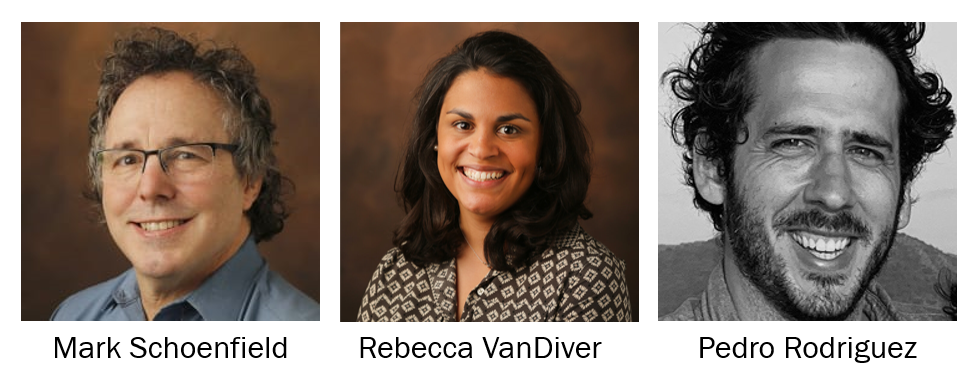 Between born-digital texts and the digitization of archival texts, researchers in the humanities and social sciences now have digital access to large bodies of written materials. How might this access enable both new questions and new answers to old questions? What tools and techniques can faculty and scholars use to see patterns in collections of digital or digitized texts? And how we train computers to understand the meanings encoded in these texts?
Between born-digital texts and the digitization of archival texts, researchers in the humanities and social sciences now have digital access to large bodies of written materials. How might this access enable both new questions and new answers to old questions? What tools and techniques can faculty and scholars use to see patterns in collections of digital or digitized texts? And how we train computers to understand the meanings encoded in these texts?
Join us for a panel of faculty and researchers who are learning and developing text analysis techniques to practice both close reading and "far" reading. Their work will provide inspiration for new approaches to your scholarship, and they will recommend ways to get started with text analysis methods.
Open to Vanderbilt faculty, staff, postdocs, and students.
Professional Productivity: Calendar Like a Pro
 Sponsors: Digital Commons, Vanderbilt Information Technology
Sponsors: Digital Commons, Vanderbilt Information Technology- Presenters: Corbette Doyle, senior lecturer in organizational leadership, and Damon Miltner, information systems manager, Vanderbilt IT
- Date and Time: Friday, October 22nd, 12:00pm to 1:00pm
- Location: Zoom
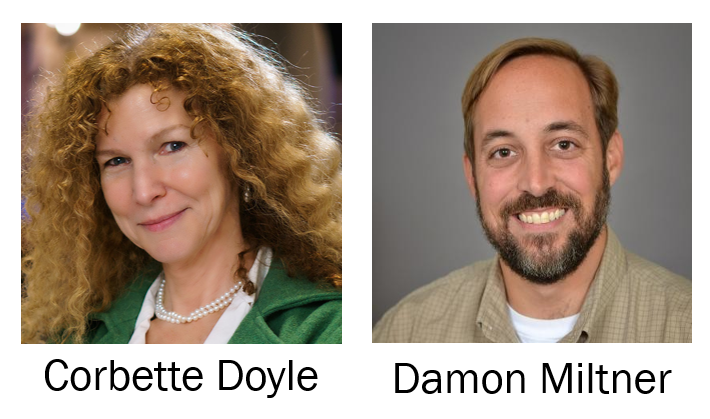 Calendaring is hard. Between planning your work week, scheduling meetings with students and colleagues, and carving out time to get stuff done, faculty calendars fill up fast. How can you fit everything in? And how can use your calendar strategically to be more productive?
Calendaring is hard. Between planning your work week, scheduling meetings with students and colleagues, and carving out time to get stuff done, faculty calendars fill up fast. How can you fit everything in? And how can use your calendar strategically to be more productive?
In this very practical professional productivity workshop, we'll hear from Corbette Doyle, senior lecturer in organizational leadership, about the tools and approaches she uses to managing her calendar, including her recent switch from TimeTrade to Calendly. And we'll hear from Damon Miltner from Vanderbilt IT about scheduling and time management tools in Outlook, the email tool provided to faculty by the university.
Open to Vanderbilt faculty, staff, graduate students, and postdocs.
Citations Made Easy: An Introduction to Zotero
- Sponsors: Digital Commons, Vanderbilt Libraries
- Facilitator: Keegan Osinski, librarian for theology and ethics
- Date and Time: Tuesday, October 19th, 3:00pm to 4:00pm
- Location: Zoom
 For most of us, formatting citations in papers and book chapters correctly is probably the least exciting part of the scholarly writing process. Also frustrating: Keeping track of all the references you're using on a project, and tracking down that one reference you bookmarked four years ago that would be really useful right now.
For most of us, formatting citations in papers and book chapters correctly is probably the least exciting part of the scholarly writing process. Also frustrating: Keeping track of all the references you're using on a project, and tracking down that one reference you bookmarked four years ago that would be really useful right now.
Managing references and citations doesn't have to be frustrating. Zotero is an open-source tool for collecting, organizing, citing, and sharing references. It was created by academics for academics, and it's especially popular in the humanities. It's just a little bit magic, allowing you to easily import and organize references and sources, and then automatically creating citations using plug-ins for Microsoft Word and Google Docs.
In this very practical (and time-saving!) workshop, librarian Keegan Osinski will walk participants through setting up the app, adding items to your library, and citing items in Microsoft Word.
Open to Vanderbilt faculty, staff, graduate students, and postdocs.
Designing Effective and Engaging Research Posters
 Sponsor: Digital Commons
Sponsor: Digital Commons- Facilitator: David Wright, Stevenson professor of chemistry and dean of sciences
- Date and Time: Monday, October 11th, 3:00pm to 4:00pm
- Location: Digital Commons, Room 200 (upstairs)
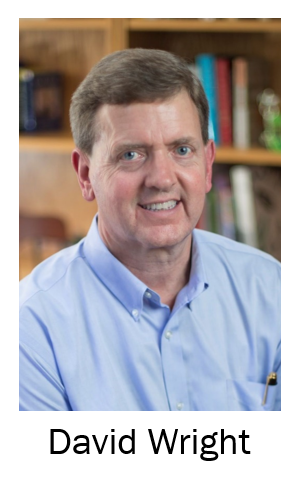 Conveying your research in a clear and compelling manner through a single poster is a communication challenge. How can the visual design of a poster, with its combination of text and images, summarize complex research findings? And how can your poster complement and enhance your verbal presentation of your work? Join us for this workshop on research poster design led by chemistry and communication of science and technology professor David Wright, whose lab has designed multiple award-winning research posters.
Conveying your research in a clear and compelling manner through a single poster is a communication challenge. How can the visual design of a poster, with its combination of text and images, summarize complex research findings? And how can your poster complement and enhance your verbal presentation of your work? Join us for this workshop on research poster design led by chemistry and communication of science and technology professor David Wright, whose lab has designed multiple award-winning research posters.
Open to Vanderbilt faculty, staff, postdocs, and students.
From Concept to Launch: Getting Your Podcast Off the Ground (or Up to the Next Level)
- Sponsors: Digital Commons, Center for Teaching
- Facilitator: Rhett McDaniel, assistant director for digital media, Center for Teaching
- Date and Time: Tuesday, October 12, 1:00pm to 2:00pm
- Location: Digital Commons, Room 200 (upstairs)

Podcasts are more popular than ever. If you've thought about making your own, now is a great time! Producing academic podcasts around your course topics will help your students learn and provide you with resources that can be reused each semester. In addition, your podcast would be accessible to the nearly 118 million podcast listeners all over the world. Even if you have already started your podcasting journey, this session can help generate fresh ideas to make your podcast even more engaging.
In this session, you'll not only become familiar with the hardware and software required to create a professional sounding podcast, but you'll also learn about other important aspects of successful podcasts like finding sources for music and sound elements, uploading and storing audio files, listing your podcast on Spotify and Apple, and designing your podcast artwork.
The session will conclude with a tour of the CFT's new Digital Media Lab. This facility includes an audio production suite, which is available to instructors for making their own podcast.
Digital Presence: Academic Podcasting
 Sponsor: Digital Commons
Sponsor: Digital Commons- Panelists: Ed Cheng, Hess chair in law; Kate Stuart, assistant director, Office of Career Development; and Amy Hill, doctoral student in German and comparative media analysis and practice
- Date and Time: Thursday, October 7th, 3:00pm to 4:00pm
- Location: Zoom
Why start a podcast as an academic? In this "Digital Presence" panel, we will learn about three academic podcasts, each with a different mission and audience.
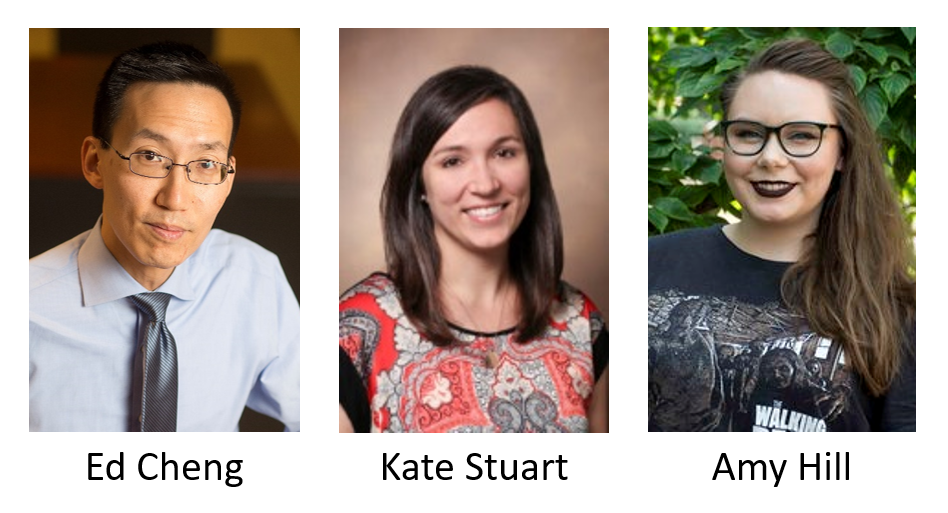 Law professor Ed Cheng is the producer of Excited Utterance, a long-running podcast featuring interviews with scholars in his research area (evidence and proof).
Law professor Ed Cheng is the producer of Excited Utterance, a long-running podcast featuring interviews with scholars in his research area (evidence and proof).- Kate Stuart produces the Beyond the Lab podcast and YouTube series for the Office of Career Development at the School of Medicine, featuring biomedical sciences PhD and postdoc alumni discussing their careers.
- Amy Hill is a doctoral student who serves as teaching assistant and digital projects coordinator for the spring 2021 course, Monuments and Memory, whose students produced a class podcast, Now This Is Monumental!
Join us to hear the origin stories of these three podcasts and to learn why and how you might start a podcast to advance your scholarship, teaching, or disciplinary service.
Open to Vanderbilt faculty, staff, postdocs, and students.
Professional Productivity: The Care and Feeding of Email
 Sponsors: Digital Commons, Vanderbilt Information Technology
Sponsors: Digital Commons, Vanderbilt Information Technology- Presenters: Robert Talbert, professor of mathematics at Grand Valley State University, and Damon Miltner, information systems manager, Vanderbilt IT
- Date and Time: Friday, October 1st, 12:00pm to 1:00pm
- Location: Zoom
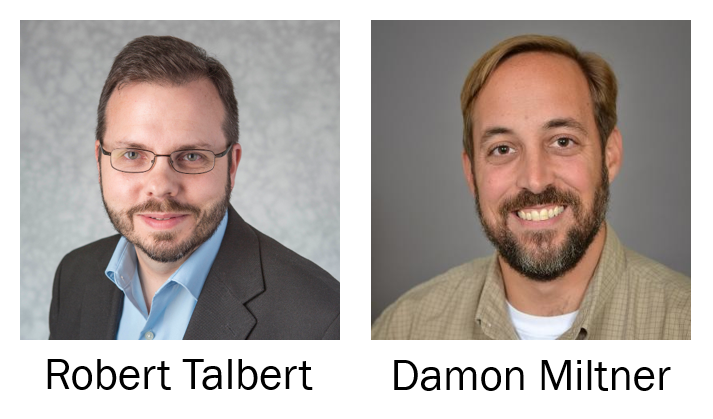 There's just too much email. That's a reality of working in the modern research university. But faculty don't have to be overwhelmed by their email. There are strategies for managing one's email, for using email efficiently as a tool to get important things done.
There's just too much email. That's a reality of working in the modern research university. But faculty don't have to be overwhelmed by their email. There are strategies for managing one's email, for using email efficiently as a tool to get important things done.
In this very practical professional productivity workshop, we'll hear from Robert Talbert, professor of mathematics at Grand Valley State University and Vanderbilt PhD alumnus, about the workflows he uses to get to "inbox zero" on a regular basis. And we'll hear from Damon Miltner from Vanderbilt IT about time-saving tools and features available in Outlook, the email tool provided to faculty by the university.
Open to Vanderbilt faculty, staff, graduate students, and postdocs.
Digital Presence: Web & Social Media
 Sponsors: Digital Commons, VU Communications and Marketing
Sponsors: Digital Commons, VU Communications and Marketing- Facilitators: Jaclyn Antonacci, senior social media specialist, and Lacy Paschal, executive director of digital strategies
- Date and Time: Wednesday, September 29th, 11:00am to 12:00pm
- Location: Zoom
This "Digital Presence" workshop is open to any Vanderbilt faculty member interested in gaining a better understanding of how to use web and social media platforms to promote their work and research, reach key audiences, become more well-known as experts, and more. A faculty member who is well-versed in utilizing web and social media will join us to share expertise.
Open to Vanderbilt faculty, staff, graduate students, and postdocs.
Digital Pedagogy: Teaching with Wikipedia
- Sponsors: Digital Commons, Center for Teaching
- Spotlight Faculty: Brooke Ackerly, professor of political science, and Kristin Michelitch, assistant professor of political science
- Date and Time: Tuesday, September 21st, 3:00pm to 4:00pm
- Location: Digital Commons, Room 200 (upstairs)
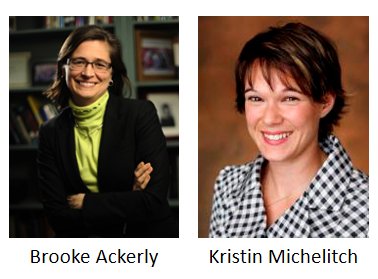 Wikipedia is home to over 55 million articles. The website is a valuable source for information, but it also has systematic knowledge gaps, as well as biases toward historically privileged perspectives. Vanderbilt political scientists Brooke Ackerly and Kristin Michelitch have been working to correct these gaps and biases by engaging their students as Wikipedia contributors.
Wikipedia is home to over 55 million articles. The website is a valuable source for information, but it also has systematic knowledge gaps, as well as biases toward historically privileged perspectives. Vanderbilt political scientists Brooke Ackerly and Kristin Michelitch have been working to correct these gaps and biases by engaging their students as Wikipedia contributors.
Students are, in fact, the ideal Wikipedians according to Ackerly and Michelitch, given their access to scholarly resources and support from faculty and librarians, as well as their "semi-expert" status. Thanks to resources from Wiki Education and support from Vanderbilt librarians, these faculty have integrated Wikipedia into their teaching and seen benefits not only to Wikipedia, but also to their own students' learning.
In this spotlight event, Ackerly and Michelitch will share their experiences teaching with Wikipedia. They will be joined by their Vanderbilt Libraries collaborators, Cliff Anderson and Mary Anne Caton. The course-based assignments and extra-curricular "edit-a-thons" they've used can be adapted by faculty in a variety of disciplines.
Open to Vanderbilt faculty, staff, students, and postdocs.
Digital Presence: Understanding and Enhancing Your Research Impact
 Sponsors: Digital Commons, Digital Scholarship and Communications
Sponsors: Digital Commons, Digital Scholarship and Communications- Facilitators: Andrew Wesolek, director of digital scholarship & scholarly communications, and Steven Baskauf, data science and data curation specialist
- Date and Time: Wednesday, September 15th, 3:00pm to 4:00pm
- Location: Zoom
Faculty and other researchers rely on a variety of impact metrics to quantify the impact of their research, and on aggregators like Google Scholar to communicate their research with others. However, not all impact metrics are equal, and aggregators don't always connect research with the right researcher.
In this workshop, Andrew Wesolek and Steven Baskauf from the Heard Libraries Office of Digital Scholarship and Communications (DiSC) will explore some of the more common impact metrics, how they are calculated, and their relative advantages. Learn how to enhance the online presence of your research and make it easier for research aggregators to communicate your work.
Open to Vanderbilt faculty, staff, grad students, and postdocs.
Digital Media Lab Open House
- Sponsors: Digital Commons, Center for Teaching
- Facilitators: Rhett McDaniel, CFT assistant director for digital media, and Tracye Davis and Seth Shepherd, CFT digital media specialists
- Date and Time: Monday, August 23rd, drop in between 1:00pm and 3:00pm
- Location: Digital Commons, Room 012 (downstairs)

Visit the CFT's new Digital Media Lab located in the Digital Commons. This new facility provides instructors with the software, equipment, environment, and instructional staff needed to help you learn how to create high-quality resources for your courses.
Bring with you any ideas for media elements you've been considering adding to your course materials and we will help identify the equipment and skills you'll need to learn to make it happen.
Open to all Vanderbilt instructors, faculty or otherwise.